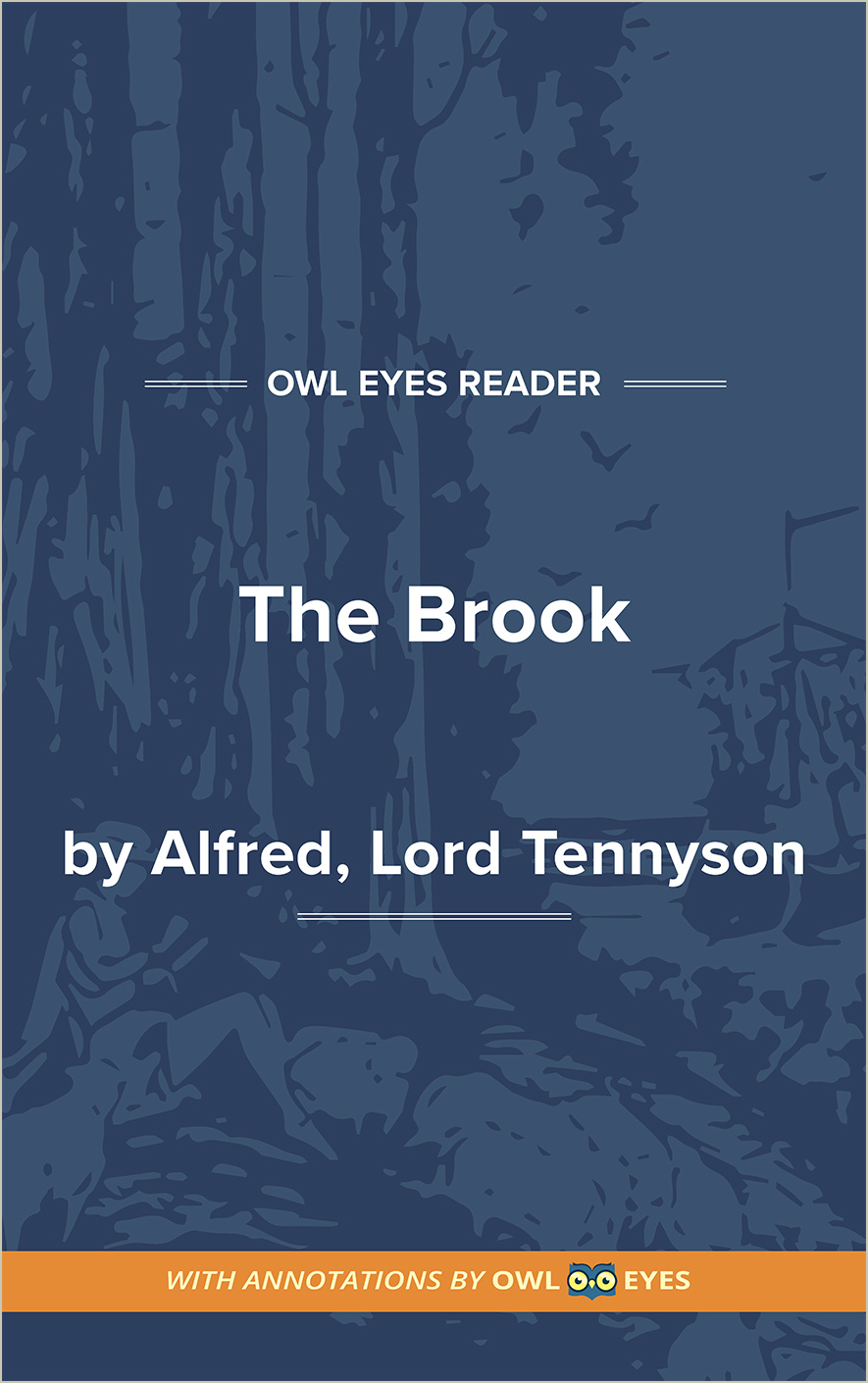Analysis Pages
Vocabulary in The Brook
Vocabulary Examples in The Brook:
Text of the Poem
🔒"mallow..." See in text (Text of the Poem)
"fallow..." See in text (Text of the Poem)
"eddying..." See in text (Text of the Poem)
"thorps..." See in text (Text of the Poem)
"a sudden sally..." See in text (Text of the Poem)
"coot and hern..." See in text (Text of the Poem)

